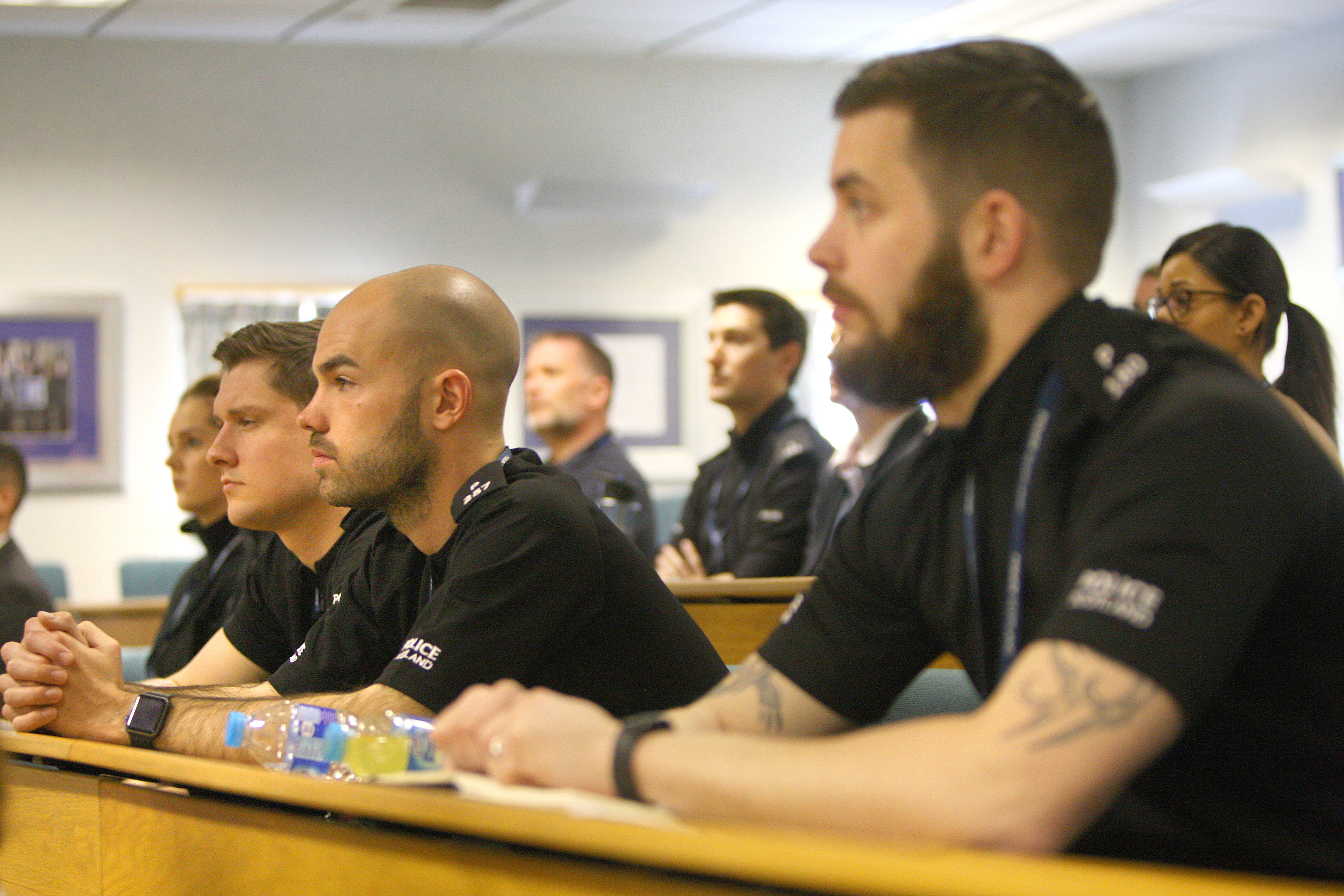Scottish police officers are taking a new look at mental health – and it’s not before time.
Statistics from the Mental Health Foundation show the extent of the problems. They are, if you will forgive the term, depressing.
For example, 15% of adults reported symptoms of a mental health condition between 2012 and 2015. MHF’s Fundamental Facts report shows worrying trends, like increases in the numbers of people with depression or anxiety.
The same report goes into detail about the links between mental ill-health and drug abuse, domestic violence and suicide.
But there is hope. I was encouraged to hear of Police Scotland’s efforts to help officers better understand mental health problems.
By next month, the training, required for all up to the rank of inspector, will have reached 17,500 police. Early results show a more sensitive approach to vulnerable citizens has already halved the number of people being taken into custody.
Think about that statistic as you look around a crowded place. If there are 24 people there, expect at least four to have suffered from mental health problems. Look carefully and try to guess who. Or don’t, because often these illnesses are invisible.
And they are illnesses. Caused by physical changes in our bodies, they are no different from physical, visible sickness. All it takes is a bad circumstance and there you are.
If this seems preachy, it’s because I feel it matters. If I was in that room, I’d be one of the four people and you wouldn’t know it. I won’t overshare but I had symptoms due to a life event that I could not avoid or control. I had help and I’m doing OK.
I’m glad the police are learning. I’m glad prominent citizens, like Prince Harry and Jayne-Anne Gadhia, chief executive of Virgin Money, are prepared to talk about their own mental ill-health.
